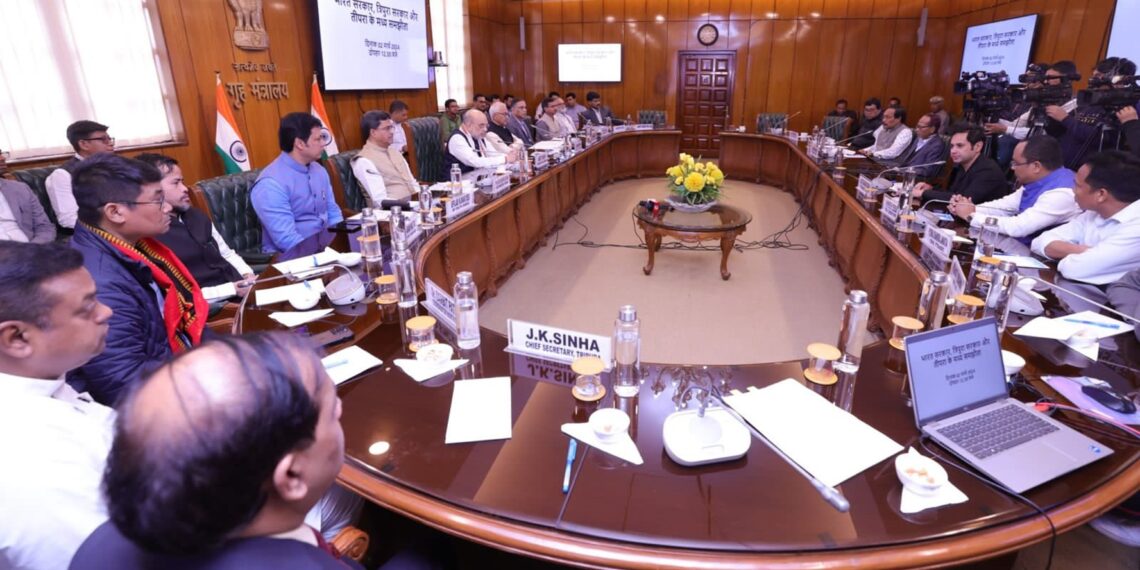AGARTALA: In a landmark move towards reconciliation and progress, a tripartite agreement was sealed on Marh 2 in New Delhi, ushering in a new era for the indigenous communities of Tripura.
The accord, inked between the Centre, state government, and the Indigenous Progressive Regional Alliance (TIPRA), widely known as Tripra Motha, signals a collective commitment to address longstanding grievances and foster inclusive development.
At the heart of this historic pact lies a pledge to address multifaceted issues concerning the indigenous populace, spanning historical injustices, land rights, political representation, economic empowerment, and the preservation of cultural heritage and language.
“It was agreed to constitute a Joint Working Group/Committee to work out and implement the mutually agreed points on all the issues in a time-bound manner to ensure an honourable solution. In order to maintain a conducive atmosphere for implementation of this agreement, all stakeholders shall refrain from resorting to any form of agitation/ protest during this period, starting from the day of signing,” the agreement paper reads.
Spearheaded by TIPRA founder Pradyot Debbarma and endorsed by key stakeholders, the agreement marks a crucial step towards ensuring the dignity and rights of Tripura’s indigenous communities.
Gracing the momentous occasion, Union Home Minister Amit Shah underscored the Centre’s unwavering dedication to fostering peace and prosperity in the Northeast.
Citing previous agreements that have facilitated the integration of thousands into mainstream society, Shah highlighted the transformative impact of dialogue and cooperation in resolving longstanding conflicts.
“This agreement represents a forward-looking approach rooted in historical acknowledgment, reconciliation, and a commitment to shaping a brighter future,” remarked Home Minister Shah, lauding the constructive engagement of Tripra Motha and other tribal parties.
“With this agreement, Tripura embarks on a transformative journey towards becoming a state free from strife and division,” concluded Home Minister Shah, affirming the government’s commitment to upholding the rights and aspirations of all its citizens.
Meanwhile, Debbarma, underscored the assembling a committee comprising adept individuals from diverse fields.
Debbarma underscored the importance of appointing competent academicians, seasoned bureaucrats, and individuals well-versed in history to ensure a comprehensive understanding of the indigenous community’s genuine grievances, while respecting the rights of other demographics.
“Our priority is to enlist individuals with a nuanced grasp of land legislation, historical and cultural nuances, educational dynamics, and academic proficiency,” he expressed to a national news outlet.















